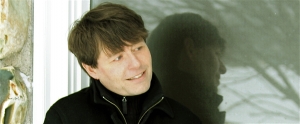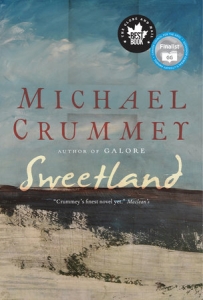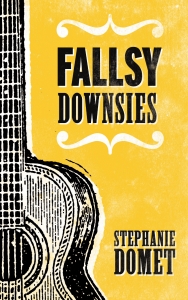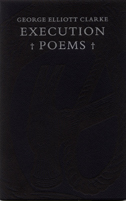Writers on Success

Michael Crummey
Writers agree: prizes are good, but you can’t let them influence the work
Success can hinder or help a writer’s career, but some Atlantic Canadian authors say that success, or lack there of, shouldn’t have any influence on future works.
“If the book you’ve written has done really well, there’s always pressure to try and duplicate that,” says Newfoundland author Michael Crummey. “If the book you’ve written doesn’t do well, there’s pressure to do better.”
 Crummey is one of many Atlantic Canadian authors whose work has been critically recognized. His 2001 novel River Thieves was nominated for the Scotiabank Giller Prize and it won the Thomas Head Raddall Award, the Winterset Award for Excellence in Newfoundland Writing and the Atlantic Independent Booksellers’ Choice Award. Other honours in his career include Governor General’s Award nominations for 2009’s Galore and 2014’s Sweetland.
Crummey is one of many Atlantic Canadian authors whose work has been critically recognized. His 2001 novel River Thieves was nominated for the Scotiabank Giller Prize and it won the Thomas Head Raddall Award, the Winterset Award for Excellence in Newfoundland Writing and the Atlantic Independent Booksellers’ Choice Award. Other honours in his career include Governor General’s Award nominations for 2009’s Galore and 2014’s Sweetland.
While these and other successes are helpful, a writer has to ignore them when working on something new. The focus must remain on the characters and their stories.
“To worry about that [success] while you’re working on a book is completely counterproductive,” says Crummey. “Your only concern should be to keep trying to make the book as good as you can make it.”
Halifax base d author Stephanie Domet has a similar viewpoint. She finds each new book can influence an author to do better next time – no matter how successful it is.
d author Stephanie Domet has a similar viewpoint. She finds each new book can influence an author to do better next time – no matter how successful it is.
“My expectations for myself are that I would do a better job, by my own standards, learn something and continue to grow as a writer,” says Domet. Her debut novel, Homing, won the Margaret and John Savage First Book Award in 2009 and her second, Fallsy Downsies, won the 2014 Jim Connors Dartmouth Book Award.
George Elliot Clarke says a writer should write what they want, no matter what is expected.
“I’m really happy to have affirmations,” he says. “On the other hand, I can never let the relative success of a particular book intimidate me into thinking that I shouldn’t write what I want to write going forward.”
 Clarke, who is originally from Three Mile Plains, Nova Scotia, has received a number of honours through his career. Along with his current position as the Canadian Parliamentary Poet Laureate, his awards include the Governor General’s Award for English Language Poetry for Execution Poems, the Portia White Prize and the Pierre Elliott Trudeau Fellowship Prize.
Clarke, who is originally from Three Mile Plains, Nova Scotia, has received a number of honours through his career. Along with his current position as the Canadian Parliamentary Poet Laureate, his awards include the Governor General’s Award for English Language Poetry for Execution Poems, the Portia White Prize and the Pierre Elliott Trudeau Fellowship Prize.
Clarke has also found the definition of success can vary. One of his biggest achievements is having his work read and being enjoyed by others.
“In all honesty, my happiest reward is to be read. Period,” he says. “The prizes, awards, honorary doctorates, invitations, appointments are welcome and highly valued by me, but my poetics is guided by William Blake: either create your own system or be enslaved by someone else’s.”
He recalls a time when he met a fan who was able to recite large passages of his award winning book Whylah Falls.
“The most amazing sign of success in my mind was that this woman had committed so many lines of it to memory,” says Clarke. “To me, that was success with a capital S.”
If winning an award or becoming a bestselling author is causing a writer to have problems, they should find a way to block that influence. Domet credits her former job at CBC Radio as something that helps her.
“As a radio host, I know there are a lot of voices expressing opinions about your work,” says Domet. “I know how persuasive and distracting those voices can be, but I have a lot of experience now figuring out where I end and those voices start.”
Still, authors can have goals when writing, even those related to success.
“Recently, I’ve said my only goal is for the book to do well enough so that the publisher will be interested in another one,” said Crummey.
After all, once a book, poem, collection of short stories or collection of poems is published, the author can only do so much to influence its success.
“Once the book comes out, it’s not yours anymore,” says Domet. “It goes out into the world and makes friends or it doesn’t; you can’t do anything about that.”
Written By:



